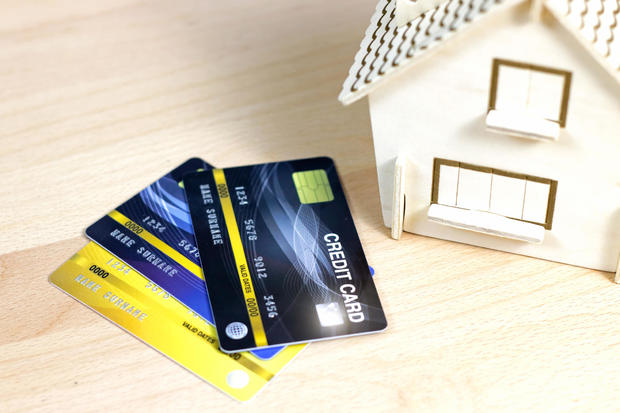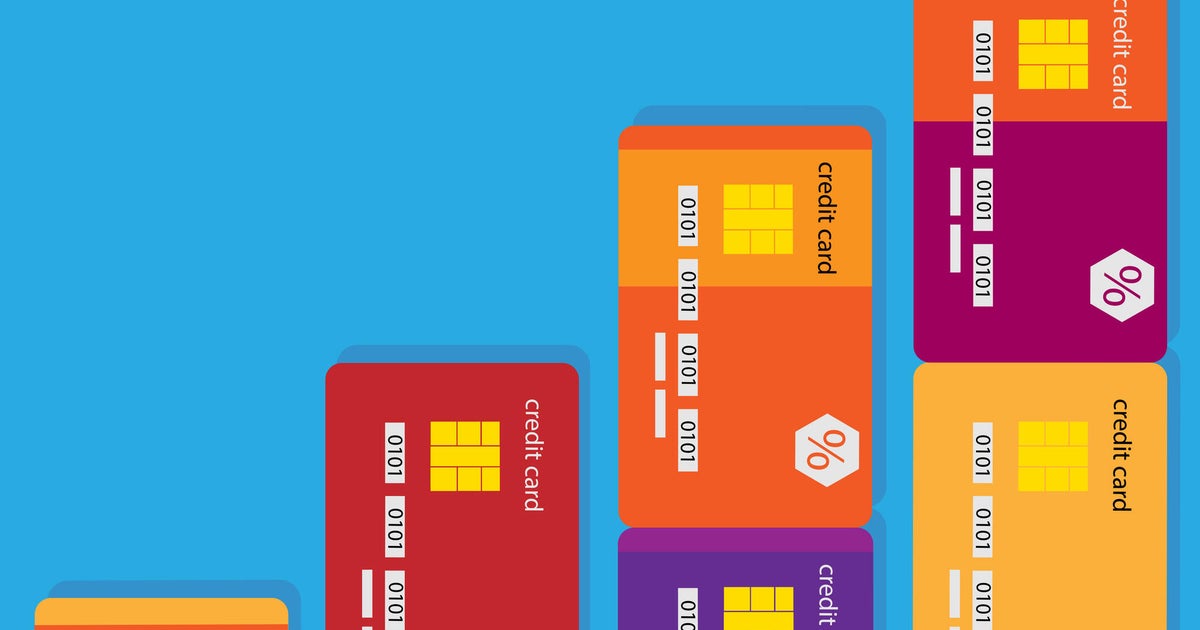HELOCs vs. credit cards: Which is better?
Sometimes, you need to borrow money to cover a large expense, whether that's an unexpected medical bill or something you hope will give you good returns, such as home improvements.
Credit cards are a financing option many people turn to because they're familiar, easy to understand and there's a good chance they already have one in their wallets. But credit cards have some significant downsides, including sky-high interest rates that can weigh you down financially for years to come.
If you're a homeowner, you have another option that could be considerably more cost-effective: drawing from your home equity. In particular, a home equity line of credit (HELOC) works the same way a credit card does, but it comes with some unique advantages that can save you money in the long run.
Which is best for you depends on many factors. But it helps to first understand the situations in which each one is a better choice.
View today's home equity rates here and see how much you might be able to borrow.
HELOCs vs. credit cards: Which is better?
Both credit cards and HELOCs give you a line of credit up to a specific amount. You can draw from that line, up to the limit, as needed. Credit cards allow you to borrow money at any time. With HELOCs, you can borrow anytime during the draw period, which is typically around 10 years.
With both options, you pay interest on the amount you've borrowed. How much interest you pay is based on the federal funds rate; HELOC and credit card rates are both variable, so they fluctuate based on where the federal funds rate is.
While they have some similarities, there are some key differences to consider when weighing whether a HELOC or credit card is the best option for you.
When a HELOC is better
A HELOC may be your wiser choice in the following scenarios.
- When you want a lower interest rate: One of the most significant differences between HELOCs and credit cards is the interest rate. HELOCs typically have lower interest rates than credit cards, making them a more affordable option for long-term borrowing. For example, the average HELOC rate currently stands at around 8.5%, while the average interest rate for new cards is above 20%.
- When you need a large amount: A HELOC may allow you to borrow up to hundreds of thousands of dollars, depending on factors like your home equity amount and credit score. Credit cards, on the other hand, typically have limits between about $1,000 to $2,500. If you need access to a significant amount, a HELOC is much more likely to provide it.
- When you'd like tax benefits: If you use your HELOC funds to make IRS-approved home improvements, you may be able to deduct the interest come tax time. That's a nice perk that can help you save a little money.
Compare your home equity options online now!
When a credit card is better
You may want to consider a credit card in the following situations.
- When you don't have enough home equity: Lenders typically require you to have at least 15% to 20% equity in your home to borrow from it. If you haven't been in your home long or haven't paid off much of the mortgage balance, you might not have enough equity to qualify for a HELOC.
- When you can pay the balance off quickly: Some HELOCs charge a penalty if you pay them off before the draw period ends. In addition, you still accrue interest from the time you open the HELOC to the time you pay it off. But if you can pay a credit card off immediately — or in the very near future — the higher interest rates might not matter as you won't accrue that much interest. Combine this with the fact that HELOCs come with closing fees, and this could end up saving you money.
- When there's a worthwhile promotion: If you qualify for a 0% balance transfer offer, it could give you some breathing room to pay off your balance without incurring interest. You'll still need to pay it off before the promotion term expires, but it could give you anywhere from a few months to a couple of years to do so.
- When you need money ASAP: Closing on a HELOC can take anywhere from two weeks to two months. If you have an urgent expense you must pay now, a HELOC isn't a great fit.
- When you're worried about losing your home: Your home serves as collateral for a HELOC, which means if you can't keep up with your payments, you risk losing your home in foreclosure. Credit cards offer the flexibility to make only the minimum payment if you have a tough month (although, of course, that means you'll incur more interest).
The bottom line
In general, HELOCs are a better choice than credit cards if you have enough equity built up in your home. They have lower interest rates, give you greater borrowing potential and sometimes come with tax benefits.
That said, there are times when you might need to turn to credit cards — in particular, if you need funds right away or don't have much equity in your home. In this instance, take advantage of any promotions you can and make a concerted effort to pay the balance off as soon as possible. If you borrow wisely, you can get the funds you need and pay as little as possible for them.
Ready to see your home equity options? Start by checking out current rates here.




